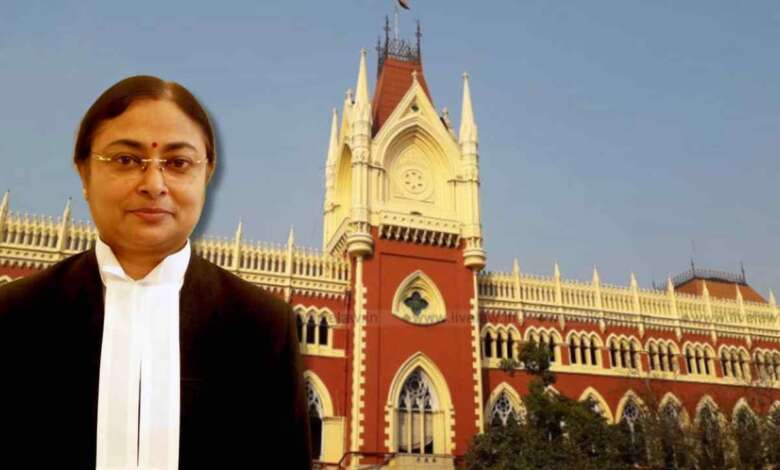Calcutta High Court Orders Public Release of 6th Pay Commission Report: Ending a Decade-Long Wait for West Bengal Employees
The Calcutta High Court has recently issued a significant directive, ordering the public disclosure of the complete report submitted by the 6th Pay Commission for West Bengal. This landmark decision marks the end of a nearly decade-long wait and persistent demand from state government employees and pensioners who have sought full transparency regarding the recommendations that govern their salaries, allowances, and other benefits. The ruling could usher in a new era of accountability and clarity in the state's public service compensation framework.(toc)
The Long Road to Transparency
The 6th Pay Commission was constituted in West Bengal in November 2015, with the primary objective of examining the existing pay structures, allowances, promotion policies, and retirement benefits for state government employees. While the state government had implemented certain aspects of the commission's recommendations, particularly concerning pay revisions, the full report had remained shrouded in secrecy. This lack of public access fueled speculation and dissatisfaction among employees, who felt deprived of crucial information influencing their financial futures.
Various employee associations and concerned citizens had consistently petitioned for the report's disclosure, arguing for the right to information and greater transparency in government operations. Their efforts highlight a broader struggle for equitable treatment and clear communication from the state administration regarding critical policies affecting a large segment of its workforce.
The High Court's Rationale
The Calcutta High Court's order emphasizes the principle of transparency in governance. The court noted that a public report, particularly one that directly impacts the financial well-being of thousands of employees and pensioners, should not be withheld. The judiciary's intervention stems from the recognition that public bodies have a responsibility to disclose information that is in the public interest, especially when it pertains to the terms and conditions of government service.
The directive mandates the state government to make the complete 6th Pay Commission report accessible to the public within a stipulated timeframe. This move is expected to provide employees with a clear understanding of the commission's detailed recommendations, the rationale behind implemented changes, and any aspects that might not have been fully adopted.
Implications for West Bengal Government Employees
The public release of the 6th Pay Commission report is anticipated to have several key impacts:
- Clarity on Pay Structure: Employees will finally have access to the comprehensive details of how their pay scales were revised, including the methodology, specific increments, and the basis for various allowances. This can help address long-standing queries and potential discrepancies.
- Understanding Dearness Allowance (DA): The report is likely to shed light on the commission's recommendations regarding Dearness Allowance (DA), a contentious issue in West Bengal where state government employees often highlight a significant disparity with central government DA rates. The details within the report could fuel further discussions and demands for parity.
- Promotion Policies and Benefits: Beyond salaries, the report would cover recommendations on promotion policies, pensionary benefits, and other allowances. Employees can now review these proposals and assess how they align with their expectations and existing service rules.
- Basis for Future Demands: With the full report in the public domain, employee unions and associations will have a more solid foundation to press for the implementation of remaining recommendations or to challenge aspects they deem unsatisfactory. It provides them with concrete data for negotiation and legal recourse.
- Increased Accountability: The transparency brought by the report's release will hold the government more accountable for its decisions regarding employee remuneration, potentially leading to more informed and justified policy-making in the future.
Looking Ahead: The Path to Resolution
While the order for public disclosure is a victory for transparency, the ultimate impact on the financial situation of West Bengal's government employees remains to be seen. The state government had implemented the 6th Pay Commission's recommendations with a notional effect from 2016 and actual implementation from January 1, 2020. However, issues like the DA disparity continue to be a point of contention, even leading to Supreme Court interventions.
The public scrutiny of the report might intensify the calls for addressing pending grievances and ensuring that the welfare of state government employees is adequately prioritized. This landmark ruling by the Calcutta High Court underscores the importance of transparency in administrative matters and is a significant step towards empowering the state's workforce with crucial information.
FAQs
Q1: What is the 6th Pay Commission report about? A1: The 6th Pay Commission report for West Bengal contains detailed recommendations regarding the pay structure, allowances, promotion policies, and retirement benefits for state government employees and pensioners.
Q2: Why was the report not publicly available until now? A2: The full report of the 6th Pay Commission had remained undisclosed by the West Bengal government, leading to persistent demands for its public release by employee associations and transparency advocates.
Q3: What prompted the Calcutta High Court's order to release the report? A3: The Calcutta High Court ordered the public release to ensure transparency in governance, recognizing the public's right to information, especially concerning policies that directly affect thousands of state employees and pensioners.
Q4: How will the public release of the report benefit government employees? A4: The release will provide employees with comprehensive clarity on how their salaries and benefits were calculated, offer a basis for understanding DA disparities, and empower unions to advocate more effectively for their rights and remaining demands.
For more in-depth analyses of government policies and their impact on public life in West Bengal, visit BytesToday.in and stay informed.



